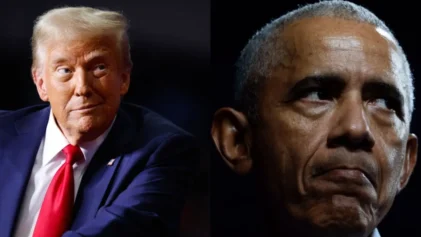His decision to confront and undercut Barack Obama was a calculated political gamble on the part of Israeli Prime Minister Benjamin Netanyahu that his good friend Mitt Romney would be the next president of the United States.
Obama’s victory over his Republican challenger on Tuesday night now has left many Israelis questioning whether Netanyahu’s failed political wager risked their collective relationship with Washington and imperiled their security.
“This has not been a very good morning for Netanyahu,” a deputy prime minister, Eli Yishai of the religious Shas Party, told journalists in Israel on Wednesday.
The prime minister, who faces his own re-election fight on Jan. 22, did not directly acknowledge any missteps, but he rushed to repair the relationship. He called the American ambassador to his office for a ceremonial hug before quickly issuing a damage-control statement declaring the bond between the two nations “rock solid.”
Netanyahu put out word to leaders of his Likud Party whose congratulatory messages had included criticism of Obama that they should stop.
The Israeli prime minister still maintains strong ties to members of Congress, particularly Republicans, and to other influential Americans. But his strained relationship with Obama may prove more than a temporary political headache. Israeli leaders and analysts are concerned that the prime minister has hampered his ability to influence Washington on vital policy matters, particularly the Iranian nuclear threat and the Israeli-Palestinian conflict.
“Netanyahu backed the wrong horse,” Mitchell Barak, a pollster and strategist, said at a morning gathering of Americans watching the election results here.
Obama’s re-election seemed to embolden Ehud Olmert, the former prime minister who has spent the past few years battling corruption charges, making it more likely that he will forge a comeback that he hopes can unite and expand Israel’s center-left bloc.
“Given what Netanyahu had done these recent months, the question is: Does our prime minister still have a friend in the White House?” Olmert asked at a Wednesday meeting with Jewish leaders in New York. “I am not certain of this, and this might be very significant to us at critical points.”
Olmert replied that it is the prime minister’s right to have a preference in terms of the candidates “but it’s better if he kept it to himself.”
The former prime minister claimed that rules were broken when Netanyahu intervened in the elections on behalf of “an American billionaire” with a clear interest in the race.
Few believe that Obama will act to punish Netanyahu, but their notoriously tense relationship, made worse in recent months not only by the Romney question, but also by Netanyahu’s hardline position on Iran, could hurt efforts to coordinate priorities. And freed from electoral concerns, the second-term president may prove likelier to pursue his own path without worry about backlash from Washington’s powerful and wealthy pro-Israel lobby.
“I would be surprised if he were more rather than less forthcoming in dealing with Israel,” Bob Zelnick, a former Middle East correspondent for ABC News who now teaches at Boston University, said of Obama. “My sense is that he both dislikes and distrusts Israeli Prime Minister Netanyahu, and that he is more likely to use his new momentum to settling scores than to settling issues.”
On Iran, the immediate concern here is that a White House pursuit of bilateral talks would stretch out the timetable for diplomacy even as Netanyahu’s famous “red line” for halting Iran’s capability to develop a nuclear weapon closes in.
Israeli officials had been counting on the Obama administration to forcefully oppose the United Nations bid by the Palestinians as it did last year.
Ehud Barak, the defense minister who shared a close partnership with Netanyahu for much of the last four years, has tried to distinguish himself on Iran and other issues as elections approach. The leader of the separate Independence Party congratulated Obama nearly an hour ahead of Netanyahu, and followed up by e-mailing reporters photographs and video of himself with the newly re-elected president.
“Even if there were certain kinds of bumps on the road in recent years, we should be able to move beyond it,” Barak said in an interview. “There is nothing better to mend any scar or grudge from the past than making better achievements in the present and the future.”


